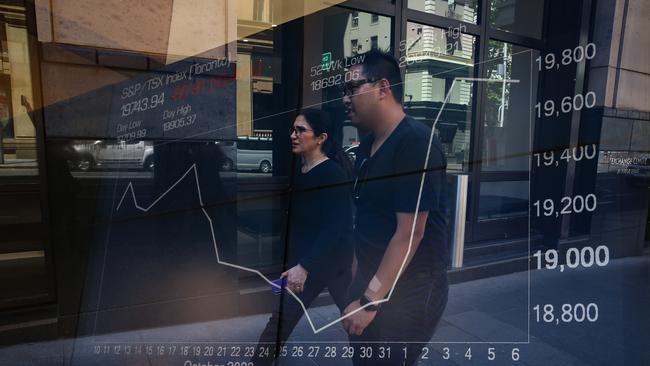
On many occasions, there’s no change to the cash rate and so attention quickly switches back to the nags, although last year there was a 25-basis-point adjustment made on Cup Day. For those with large mortgages and facing rising cost-of-living pressures more generally, it’s a tense time; ditto for those businesses carrying a lot of debt.
Notwithstanding the fact that the Reserve Bank has been an independent agency for two and half decades, the temptation for the treasurer of the day to make “persuasive” comments on where interest rates should head is always there. The remarks often include something along the lines that “while I clearly respect the independence of the bank”, yada yada.
Jim Chalmers has fallen into this trap big-time, given the political sensitivities of any further increases to interest rates. Note here, there had been 12 rate rises in just under a year and half, but none in the past four months.
When the recent quarterly CPI figures were released, the Treasurer quickly declared that there wasn’t a “material change” to the inflation outlook, even though the headline figure was much higher than expected and inflation in the services sector is clearly proving sticky.
He leapt on comments made by newly appointed bank governor Michele Bullock that the current fiscal policy settings were “good” and “enough” as complements to monetary policy – hardly effusive adjectives.

The various budget measures designed to address cost-of-living pressures – think here energy rebates, childcare fee subsidies, cheaper medicine, higher bulk-billing rebates and the like – are described by Chalmers as investment rather than spending. The truth is these subsidies are government spending and, as such, they are stimulatory. It’s why Chalmers is between a rock and a hard place: hand out more subsidies, which can have political appeal, but increase the likelihood of more interest rate rises.
The decision by the bank to increase the cash rate by 25 basis points, announced just prior to the starter’s gun for the race going off, was not unexpected. Most economists predicted that this would occur and the bond markets were also expecting this outcome. At 4.35 per cent, our cash rate now moves closer to the official rates of most developed economies.
The decision was based on the bank’s assessment that inflation could remain higher for longer. According to the bank’s statement, “underlying inflation was higher than expected at the time of the August forecasts, including across a broad range of services. Conditions in the labour market have eased but they remain tight. Housing prices are continuing to rise across the country.”
The only slight comfort that Chalmers can take out of the statement is that a further rate rise in December is no certainty.
“Whether further tightening of monetary policy is required to ensure that inflation returns to the target in a reasonable time-frame will depend upon the data and the evolving assessment of risks.” This contrasts with previous statements pointing to an almost guaranteed rise in the cash rate the next month.
In terms of an immediate reaction, there is not much Chalmers can do apart from express sympathy for those negatively impacted by the rate rise. Prattling on about volatile petrol prices doesn’t add much.
His best response is to ensure that fiscal policy is strongly supporting monetary policy – not just good or enough – but this may require a degree of spending restraint that is difficult to square with political pressures to implement more measures to relieve cost-of-living pressures.
Judith Sloan is contributing economics editor.







Forget the race that stops the nation; it’s the event that ties up economics writers. It’s the decision of the Reserve Bank weirdly on Cup Day each year.